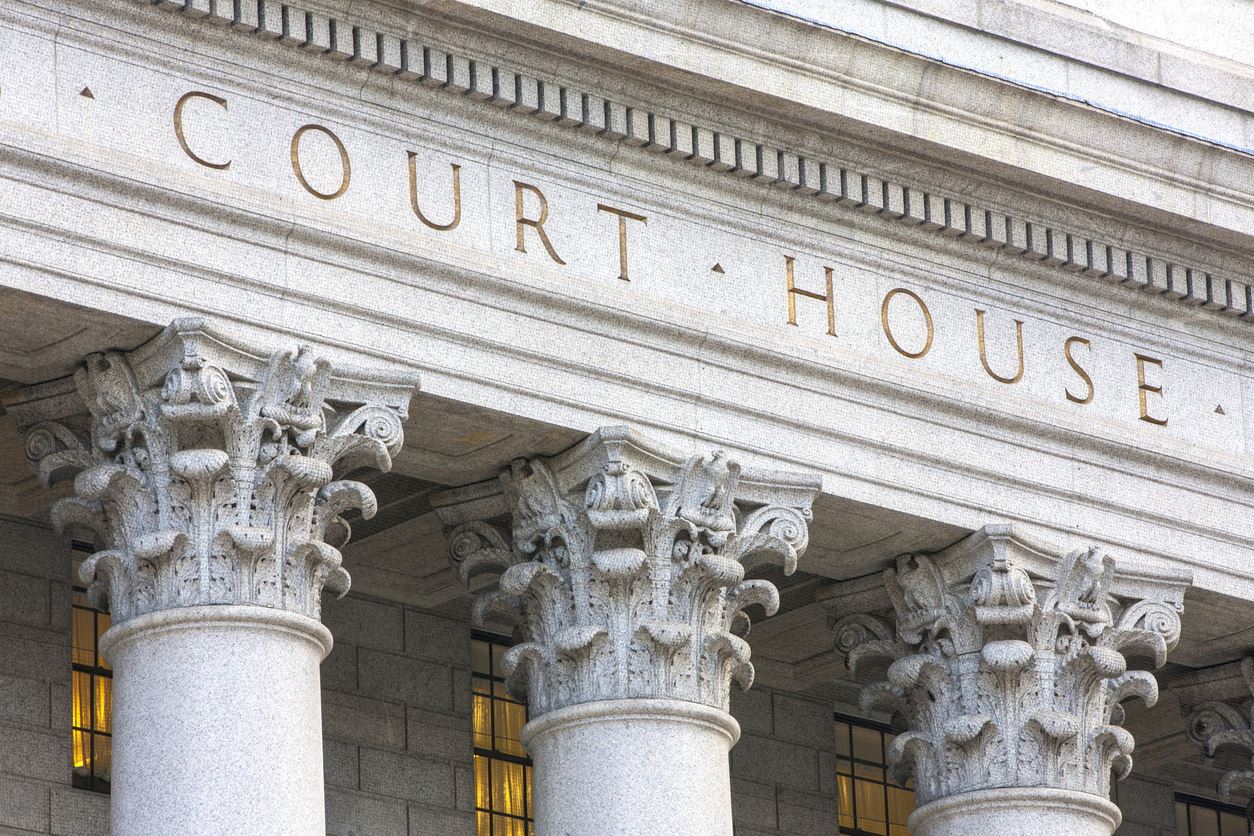
Austin Community Supervision Violations Lawyers
Contact Cofer & Connelly, PLLC if You Were Arrested for Violating Community Supervision
Under certain circumstances, community supervision can play a crucial role in the state's criminal justice system, offering alternatives to traditional sentencing like imprisonment.
If you or someone you know is facing accusations of violating the terms of a community supervision sentence, it's essential to have experienced legal representation. At Cofer & Connelly, PLLC, our experienced criminal defense lawyers understand the complexities of community supervision cases in Texas and are prepared to advocate on your behalf, ensuring that your rights remain protected and striving for a favorable outcome to your unique circumstances.
Contact Cofer & Connelly, PLLC at (512) 991-0576 or reach out online for a consultation if you need legal representation regarding an issue with community supervision.
What Is Community Supervision?
Community supervision is an alternative sentencing to jail or prison. Instead of being incarcerated, those sentenced to community supervision serve their time in the community – sometimes this is referred to as adult probation.
Community supervision encompasses a range of programs and sanctions imposed by the court, aimed at rehabilitating defendants while they remain in the community under certain conditions, such as residential confinement or scheduled meetings with their CSO. These conditions are imposed for a set period during which either criminal proceedings are deferred or a sentence of imprisonment is set aside in favor of probation.
Violation of Community Supervision Conditions
Texas law outlines the state’s procedures for handling violations of community supervision conditions. Typically, if a violation occurs, a judge may issue an arrest warrant for the individual whose community supervision conditions are being scrutinized. Within 48 hours of an arrest, the defendant must be presented before the judge or a magistrate who is responsible for determining the alleged violation and authorizing the defendant's release on bail. The judge, after a non-jury hearing, may decide to continue, extend, modify, or revoke the community supervision terms of the individual.
Continuation or Modification of Community Supervision After a Violation
When a defendant who is subject to the terms of a community supervision sentence violates one or more of their supervision, the judge assigned to their case has the discretion to either continue or modify the community supervision terms. This decision is based on the judge's assessment of how serious the violation was, whether there were any extenuating circumstances that should be taken into account, whether this is the defendant’s first infraction, etc.
There are four primary ways that a judge may choose to modify the terms of an individual’s community supervision:
- Community Service Requirement: A judge can mandate that the defendant must perform community service for hours as either a new requirement or an increase in previously mandated hours. An increase in hours is subject to specific limits under state law.
- Extension Of Community Supervision Period: The judge can extend the period of community supervision that the individual must be subject to before they will be freed from the terms of their arrangement.
- Increase In Fine: An increase in fines may be imposed. However, the total fine, original and increased combined, should not exceed the maximum fine applicable for the offense for which the defendant was sentenced.
- Placement In Substance Abuse Program: If the defendant is convicted of certain felonies, and if drug or alcohol abuse significantly contributed to the offense and/or the violation of the supervision condition, the judge can place the defendant in a substance abuse treatment program. Upon successful completion of the program, the defendant will be required to participate in a continuum of care treatment plan for drug and/or alcohol abuse.
Extension of Community Supervision After a Violation
Texas state law allows a judge to prolong community supervision terms if they have good cause to do so. This extension can be applied as often as the judge deems necessary, to a point. For a first, second, or third-degree felony case, the total period of community supervision generally cannot exceed ten years.
In the case of misdemeanors, barring exceptions, the community supervision cannot surpass three years. A judge has the authority to extend this period up to an additional two years, making a total potential supervision period of five years for misdemeanors. This extension is contingent upon two main conditions:
- The defendant has failed to satisfy a cost, fine, or restitution.
- The judge believes that prolonging the supervision will increase the likelihood of the defendant fully paying the fine, cost, or restitution.
Revocation of Community Supervision
There are times when the terms of a defendant’s community supervision arrangement may be revoked outright. A judge may choose to proceed with disposing of the case as though no community supervision had ever been granted. This essentially involves resetting the defendant’s case to the point before community supervision was assigned, allowing the court to reassess the case anew.
Ultimately, the judge in a particular case may opt to reduce the term of confinement that was originally cited as the punishment for a revocation of community supervision terms if it is deemed in the best interests of both society and the defendant. There is judicial discretion in sentencing situations like these, allowing for a more tailored approach to individual cases. This is one of the reasons why it is so important to speak with a criminal defense attorney as soon as a community supervision violation occurs. If the situation is handled in informed ways, the consequences may not be as severe as they otherwise would.
Credit For Time Served
Texas law allows for the crediting of time served by the defendant in certain conditions. Specifically, time spent in a substance abuse felony punishment facility or other court-ordered residential program can be credited, but only if the defendant successfully completes the treatment program in that facility.
Right Of Appeal
Finally, Texas state law details the right of the defendant to appeal a revocation of their community supervision terms. As a result, even if the terms of one’s arrangement are initially overturned, that decision could potentially be successfully appealed.
Extension Of Community Supervision

There are also conditions under which a judge may extend the period of community supervision for a defendant. This opportunity is applicable for defendants who have been either granted deferred-adjudication-community-supervision or convicted of specific offenses under the law. A judge has the authority to extend the supervision period at any time during the initial period of community supervision.
During a violation hearing, a judge can extend the supervision for up to 10 additional years. This extension is contingent on two determinations: first, the defendant's insufficient demonstration of commitment to avoid future criminal behavior; and second, releasing the defendant from supervision would pose a danger to the public.
Defending Accusations of Violating Community Supervision
With help from our experienced team of former prosecutors and judges, you can challenge the community supervision violation laid against you. Here are some possible defenses we may employ:
Challenging the Allegation of Violation
One primary defense strategy involves contesting the violation itself. If the evidence is insufficient, unreliable, or obtained in violation of the defendant's rights, it can be contested. For instance, if the violation is for missing a meeting with a supervision officer, the defendant can present evidence showing they attended or had a valid reason for missing the meeting.
Substance Abuse And Mental Health Considerations
For violations related to substance abuse or mental health issues, a defense could involve presenting evidence of the defendant's ongoing treatment or efforts to seek help. This may include medical records, testimonies from health professionals, or proof of enrollment in rehabilitation programs. The court might consider these efforts as a factor in deciding whether to revoke or modify the terms of the defendant’s community supervision.
Procedural Defenses
There are also procedural defenses. These involve challenging the manner in which the alleged violation was identified, reported, or processed. For example, if the defendant was not given proper notice of the conditions of supervision or if there was an error in the reporting process, these could be grounds for a defense.
Extenuating Circumstances And Good Faith Efforts
Lastly, demonstrating extenuating circumstances or good faith efforts to comply with supervision conditions can be a defense. This might include presenting evidence of unforeseen challenges, such as medical emergencies, that prevented compliance. Good faith efforts, like attempting to reschedule missed appointments or seeking assistance, can also be highlighted.
Frequently Asked Questions About Community Supervision Violations
What Is A Violation Of Community Supervision?
A violation of community supervision in Texas generally occurs when a defendant fails to comply with the conditions set by the court. These conditions can include regular meetings with a supervision officer, payment of fines or restitution, attending counseling sessions, and not committing new crimes. Each case has specific terms, and any failure to adhere to these can be considered a violation of a defendant’s arrangement.
What Happens If I Am Accused Of Violating Community Supervision?
If accused of a violation, a warrant for your arrest may be issued. You will then be required to appear before a judge or magistrate, typically within 48 hours of arrest, to address the alleged violation. During this process, you have the right to counsel and can contest the allegations.
Can My Community Supervision Be Extended For A Violation?
Yes, a judge in Texas has the authority to extend your period of community supervision if a violation is proven. The extent of the extension depends on the severity of the violation and the specific circumstances of the case.
Is It Possible To Defend Against A Community Supervision Violation Charge?
Defending against a charge might involve challenging the evidence of the violation, demonstrating financial inability to pay fines or fees, proving engagement in treatment for substance abuse or mental health issues, and/or highlighting procedural errors or extenuating circumstances. An experienced attorney can help you to navigate these defenses as effectively as possible.
What Are The Consequences Of A Community Supervision Violation?
The consequences can range from modification of the supervision terms, such as additional requirements or an extended supervision period, to revocation of the community supervision arrangement as a whole. In the case of revocation, the court may proceed with sentencing as if the community supervision had never been granted. Meaning, you could end up in jail or prison.
Can I Appeal A Decision To Revoke My Community Supervision?
Yes, defendants in Texas have the right to appeal the revocation of a community supervision arrangement. The appeal process can assess both the conviction and the decision to revoke the supervision, depending on when the right to appeal was granted.
Speak With Our Austin Criminal Defense Attorneys Today About Your Concerns
If you or someone you know has been accused of violating the terms of community supervision in Texas, it's crucial to seek legal representation immediately. The experienced criminal defense lawyers at Cofer & Connelly, PLLC are here to help you navigate your community supervision case.
Don't wait; contact Cofer & Connelly, PLLC today at (512) 991-0576 or reach out to our Austin community supervision lawyers online for a consultation. Your future and freedom are our priority.

-
"Excellent all around. Highly recommend."W. N.
-
"I am eternally grateful for all of the efforts they put in to go above and beyond for everyone they help."Former Client
-
"They really listen to and care about their client's needs and consistently fight for the best outcome! I am eternally grateful for all of the effort they put in to go above and beyond for everyone they help."C.D.
-
103 Years of Experience
-
32,000 Cases
-
357 Trials





















